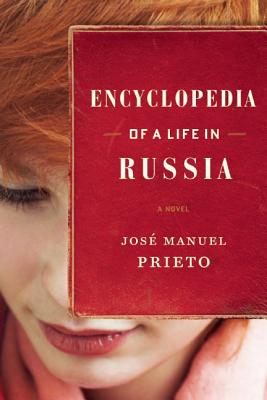The Hysterectomy Waltz by Merrill Joan Gerber Dzanc Books; 194 p. At a recent panel discussion on women in criticism, many of the participants expressed a perceived bias against anger in the writing of women. Some explained, that as women, they felt they couldn’t let loose on a topic, though a man could, for fear of being perceived as a shrew. As a male writer, it feels inappropriate for me to opine on this issue, but I can say, after […]
European Refugee Lit: Anna Seghers’s “Transit” Reviewed
Transit by Anna Seghers; translated by Margot Bettauer Dembo NYRB Classics; 280 p. Anna Seghers, one the most respected and important German authors of the 20th century, wrote perhaps the earliest account of the Nazi concentration camps. That book, The Seventh Cross, tells a similar story to her own time in a camp. Now, NYRB Classics has released a sequel of sorts. Transit tells the story of a lesser-known component of the Second World War, the displacement of millions of refugees. While […]
“Memories Collide With Dreams”: A Review of Leonid Tyspkin’s “The Bridge Over The Neroch and Other Works”
The Bridge Over the Neroch and Other Works by Leonid Tsypkin New Directions; 346 p. There is a sad sweetness in enjoying the work of a posthumously found author. We read and thereby bestow posterity and value to the works, but simultaneously confront the loneliness of writing masterpieces into a void of no response. In this act of redemptive reading, we highlight the loneliness of genius. Leonid Tsypkin, like few other writers, embodies this bittersweet situation. Tsypkin vacillated between medicine […]
Love and Disaster in a Post-Everything World: A Review of Alejandro Zambra’s “Ways of Going Home”
Ways of Going Home by Alejandro Zambra; translated by Megan McDowell Farrar, Straus and Giroux; 160 p. All novels attempt to answer a question. Lolita, for example, attempted to answer the question of whether Nabokov could write one of the greatest and most beautiful novels ever around a revolting character and topic? (“Yes. Obviously,” the book replies with insouciance.) Many of the writers living under dictatorships or totalitarian or fascist regimes asked the same abiding question: How do you retain […]
Postmodern and Post-Soviet: “Encyclopedia of a Life in Russia,” Reviewed
Encyclopedia of a Life in Russia by José Manuel Prieto; translated by Esther Allen 224 p.; Grove/Black Cat Perhaps the greatest divide between European and American literature lies in the weighty consciousness of history, or lack thereof. American literature, for numerous reasons that we can theorize about, largely lives outside of history and politics and rather dwells inside the individual, in the urgent now. European literature, in contradistinction, cannot outrun history or politics. Their authors feel the immense weight, […]
Englander on Stage: “The Twenty-Seventh Man” Reviewed
More than most authors these days, Nathan Englander struggles to balance his considerable tools of literary craft with his restless mind. In everything I read or see from him, his ideas fight with his characters instead of creating a healthy symbiosis. I felt this way about much of his most recent collection, What We Talk about When We Talk About Anne Frank. In those stories, the characters feel alive, but in servitude to the master, to Englander himself and his […]
Jack Gilbert: An Appreciation
This past Monday, the venerated and venerable poet Jack Gilbert died. (His Wikipedia page will do an infinitely better job than me at providing the basics of his life or his bibliography.) I imagine he would ask us to celebrate life, and his life, rather than mourn his death. When a poet who writes consistently of his own pain and strange relationship to lost loved dies himself, our own words can sound lame, pathetic. Consequently, I turn to his own lines […]
A Literary Tradition Resurrected: Richard Beard’s “Lazarus Is Dead” Reviewed
Lazarus is Dead by Richard Beard Europa Editions; 272 p. Over the span of sixteen years, Thomas Mann penned what he thought of as his greatest work: a four part novel entitled Joseph and His Brothers which retells the biblical story of Joseph in Egypt. That few (if any) of us ever heard of these novels attests to the irrelevance of the Bible to our literary consciousness. Yet authors have long made use of the Bible in one way or […]




